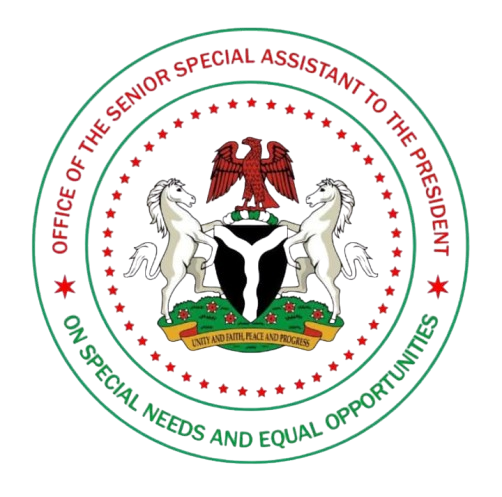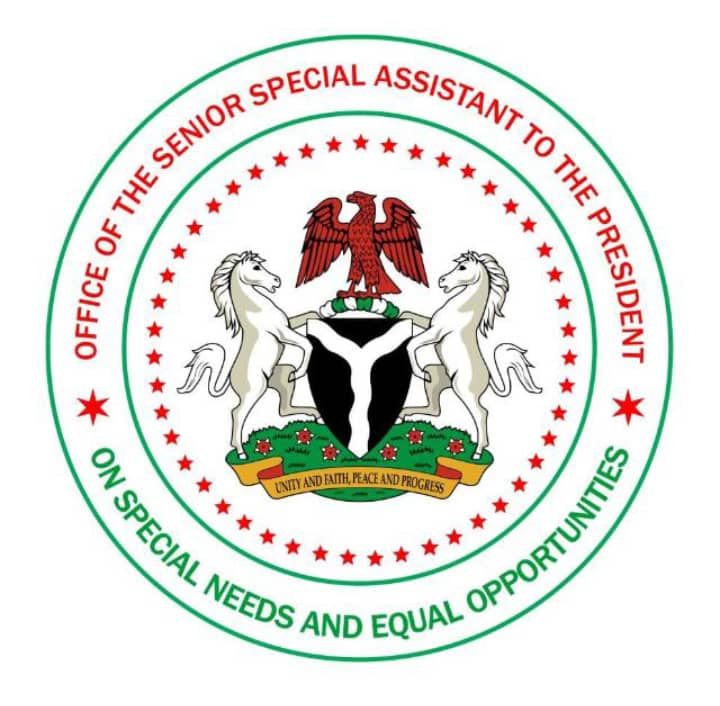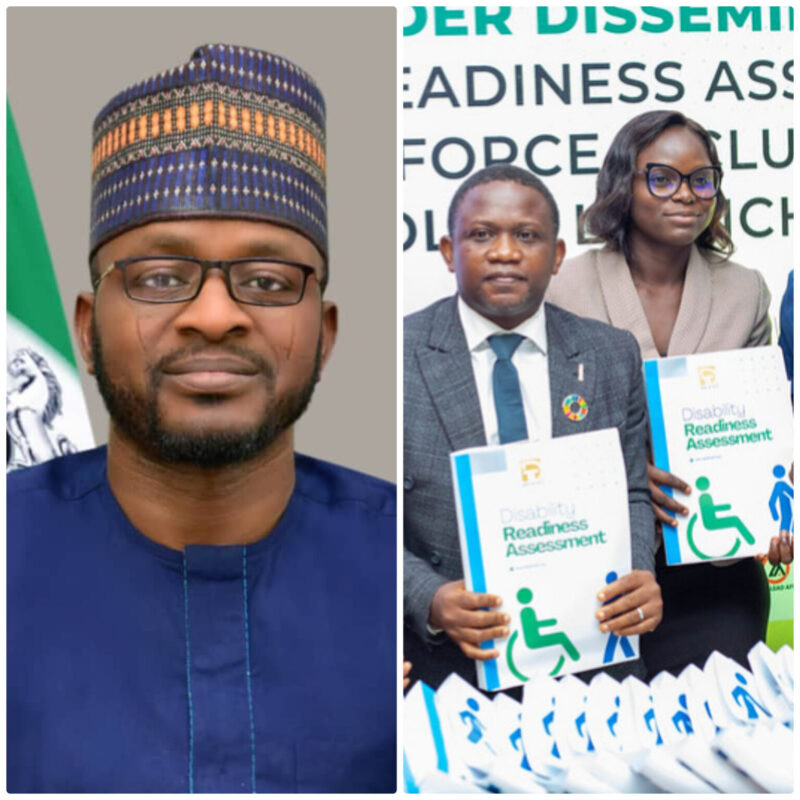By Lanre Oloyede
The Senior Special Assistant to the President on Special Needs and Equal Opportunities, Hon. Mohammed Abba Isa, Tuesday performed the official unveiling of the Disability Readiness Assessment and Workforce Toolkit—a pioneering initiative aimed at advancing disability inclusion in Nigeria’s workforce.
The toolkit, produced by Deaf-in-Tech in partnership with DataLead Africa and supported by the MacArthur Foundation through the Joint National Association of Persons With Disabilities (JONAPWD), is the product of rigorous research and consultation. It assesses how prepared public and private institutions are to integrate Persons with Disabilities (PWDs) into their workforce and highlights existing gaps in accessibility, policies, and workplace culture.

Represented by his Director of Media and Communications, Mr. Lanre Oloyede, Hon. Abba Isa described the unveiling as both “timely and strategic,” emphasizing its alignment with the Renewed Hope Agenda of President Bola Ahmed Tinubu’s administration. He noted that this initiative marks a significant step toward transforming inclusion from a theoretical ideal to a practical reality in Nigeria.

“Employment and workplace accessibility are fundamental to dismantling the age-old nexus between disability and poverty. When PWDs are gainfully employed, they become economically independent, empowered, and most importantly, they are taken off the streets and into spaces where they can contribute meaningfully to national development,” Hon Abba Isa remarked.

He reiterated the Federal Government’s support for the project, highlighting the administration’s vision for a Nigeria where inclusion, equality, and opportunity are universal values. He also advocated for the expansion of the 5% employment quota for PWDs—currently applicable only to the public sector under the National Disability Act of 2018—to include the private sector.

“To achieve broader and more meaningful inclusion, I call for an urgent amendment to the Act to extend this quota to the private sector. This reform will ensure that no qualified PWD is left without a job opportunity, regardless of the sector,” he stated.

Hon. Abba Isa also stressed that employment for PWDs should not be about fulfilling quotas but about upholding dignity and providing reasonable accommodations in the workplace, including accessible infrastructure, adaptive tools, and flexible work policies.
Since assuming office, the SSA noted that his engagement with Ministries, Departments, and Agencies (MDAs) has facilitated the employment of over 50 PWDs—a demonstration of what can be achieved through targeted advocacy and stakeholder collaboration.

“As we gather here today, I urge all participants to contribute their knowledge, experiences, and innovative ideas to the development of an efficient and effective toolkit for promoting disability inclusion in the workforce,” he added.

In her welcome address, Mrs. Sefunmi Oluwole, Program Manager for Gender and Disability Inclusion Initiatives at DataLead Africa, emphasized the significance of the toolkit in evaluating systemic readiness for inclusion.

“This toolkit was designed to answer one fundamental question: How ready are our systems and communities to support inclusion?”

“The findings reveal progress made, but also expose the persistent gaps in Nigeria’s socio-economic fabric. Inclusion is not optional—it is the standard,” she said.

Mrs. Oluwole affirmed the toolkit’s value as both a reflection of months of inquiry and a resource for action by governments, NGOs, schools, and institutions committed to creating inclusive environments.

Providing an overview of the toolkit, Dr. Ayoola Arowolo, Executive Director of Deaf-in-Tech, underscored the role of technology in bridging the gap between disability and opportunity.

Dr. Arowolo said: “Tech skills are a powerful equalizer. Since 2022, we’ve trained over 1,200 deaf individuals in tech-related skills. But even with quality training, systemic barriers remain. Institutions are often not ready to absorb these talents, which is why this toolkit is essential—it helps them assess their readiness and make the necessary changes.”

He added that the toolkit evolved from Deaf-in-Tech’s direct experience with systemic resistance to inclusion, despite the evident competence of their trainees.

As the event concluded, Hon. Abba Isa reaffirmed the readiness of his office to partner with DataLead Africa and other stakeholders in the implementation of the toolkit across institutions nationwide.

“Together, we can ensure that the vision of an inclusive Nigeria becomes a reality. Let us rise to this challenge with renewed purpose, guided by hope and fueled by action,” he concluded.

The launch marks a new chapter in Nigeria’s ongoing journey toward equity, access, and opportunity for all—one where disability is not a barrier, but a facet of the nation’s rich human diversity.




